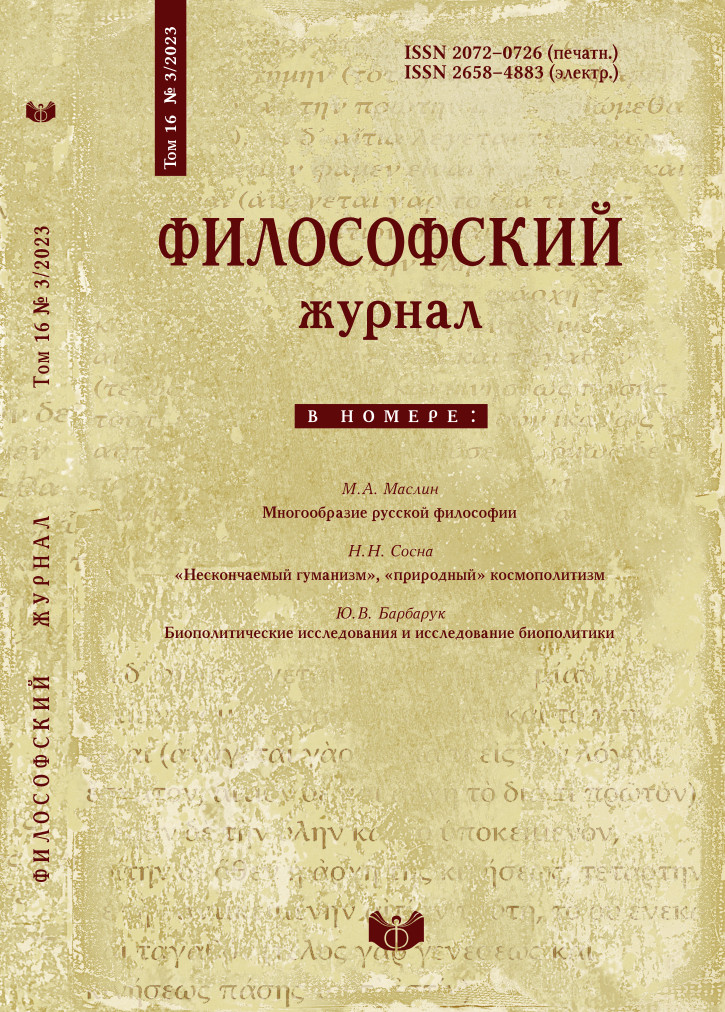Diversity of Russian philosophy
DOI:
https://doi.org/10.21146/2072-0726-2023-16-3-24-33Keywords:
Russian philosophy, Russian worldview, philosophical universalism, diversity of Russian philosophy, MarxismAbstract
The article is written on the basis of author’s paper at the panel discussion “How we understand Russian philosophy” hold in the Institute of Philosophy, Russian Academy of Sciences. The article presents contemporary look on the problem based on the thesis of diversity as the central fundamental characteristic of the Russian philosophy. The diversity must be acknowledged as the expression of it’s sovereignty opposed to the sole normative approach. Such kind of approach based on dogmatic Marxism had been spread during Soviet period by authoritarian measures. The conception of diversity instead of Marxist oriented unification proposes variety of cognitive and hermeneutic means for knowing the treasury of Russian intellectual history. Another aspect of diversity includes multiplicity of languages used in philosophical texts besides proper Russian during the various periods. There are: Church Slavonic, Greek, Latin (XI–XVII centuries), French, English, German (XVIII–XX centuries) and various Slavic languages (XIX–XX centuries). Multiplicity of languages in Russian philosophical space could be explained mostly by political and censorial reasons. That multiplicity incorporates also high assortment of ethnic groups that took part in the elaboration of various philosophical texts. It included Greeks, Ukrainians, Moldavians, Serbs etc. Many Russian thinkers had been exiled abroad or ought to leave home country to avoid political repressions: A.I. Herzen, M.A. Bakunin, P.A. Kropotkin, N.A. Berdyaev, S.L. Frank, S.L. Karsavin, S.N. Bulgakov and others. Therefore they created their writings in abroad. Needless to mark also that some Russian thinkers born in Russia, such as A. Koyre, A. Kozhev, I. Berlin, P. Sorokin, became famous Western philosophers in emigration.






